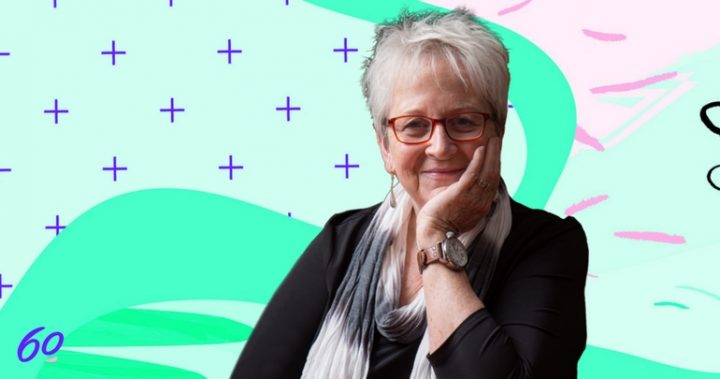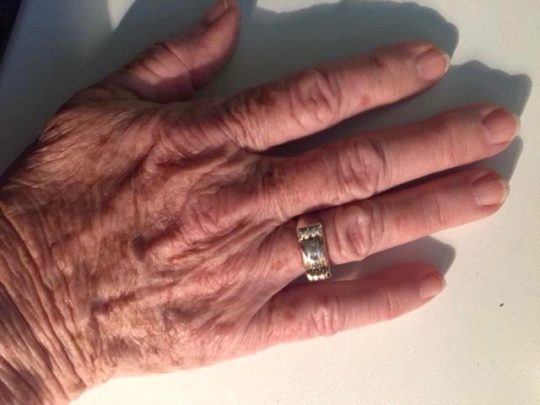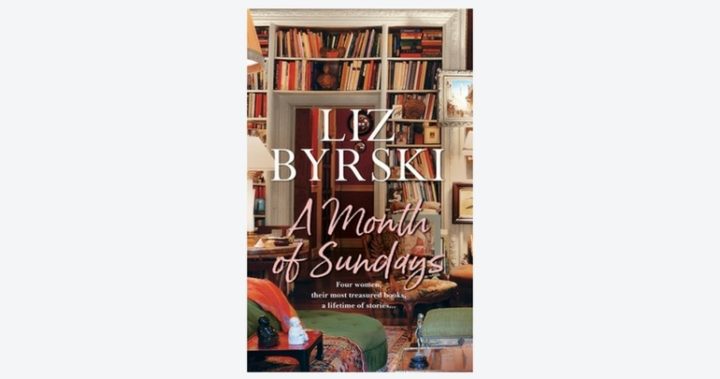Liz Byrski: 60 the new 40? No, it’s actually better in many ways

Remember when we were told ‘sixty is the new forty’? I’ve been searching Google to find who first said this and when; no luck so far.
But it seems that a lot of people, politicians, medical experts, health gurus, lifestyle writers, statisticians and commentators on everything from ageing to banking, business and financial management have circulated it. I saw it first as a newspaper headline alongside a photograph of then Treasurer Peter Costello wearing a wide grin. I haven’t been able to identify the date or the year, or whether Costello was the first to suggest this, but I believe it was some time in 2007.
Back then I was in my early sixties and standing in the queue in the local newsagent. ‘What rubbish,’ I said, intending to talk to myself, but it sort of fell out of my mouth!
‘In your dreams eh!’ said a voice behind me. I turned to see a man of similar age or a little older. We both burst out laughing. Before we reached the counter we had agreed that while people today look younger than most of those in the past looked in their sixties, and we are largely healthier, and many of us more fortunate than previous generations in their sixties, there are profound differences between those times of life.
I’m now seventy-four and I thought of this recently, after I’d bumped into a lovely woman whom I hadn’t seen for at least six months, and whose name I couldn’t remember.
‘How are you?’ she asked. ‘You look fantastic.’
She complimented me on my skin, my hair, the fact that she could see that I had lost a few kilos. She was looking terrific too, I told her. She always looks slim and fit, has a flawless complexion and long glossy hair. We talked briefly about age, and I mentioned that while I am well and enjoying being in my seventies, I’m concerned that my memory constantly lets me down.
‘Oh but that’s normal,’ she said. ‘We all do it I’m fifty-two and I’m always forgetting stuff – like where I left my keys or my sunglasses and sometimes I can’t remember people’s names.’
I was still trying desperately to remember her name!
‘You look so young,’ she continued. ‘And just remember,’ she said, ‘seventy is the new fifty now!’
So often judgements about age are made on the basis of their faces. I should have told her to look at my hands (see photo), a far more effective way of seeing the reality of age.

We all know that these days it’s entirely possible for someone in their seventies to look a couple of decades younger. But most of know that by the time we reached the sixties and seventies we have grown in many ways. No! Not diminished, simply changed. We’re still who we’ve always been, but we are also different.
The difference between the fifties and the seventies is vast ravine and many of us who have crossed it think that the difference has a lot going for it. There is so much to enjoy, many new challenges and new possibilities to explore, and for many of us there is more time. Of course there are disadvantages in many respects but that’s true of any time of life. For me, as for many others, youth and middle age were not spectacular. Since I turned sixty all sorts of aspects of my life have changed for the better. And the difference lies in how we feel about ourselves. I wouldn’t go back to my fifties for quids.
My memory is terrible now, not just in the way it used to be, not just because we are all overloaded with new stuff to take in, learn and remember, but because I’m old. I am still trying to remember that lovely woman’s name, and it’s a couple of months since that day. Things that I could once quickly recall: where I left my keys, the date of my grandchildren’s birthdays, titles of books or movies that I’ve watched or read quite recently might take days, or weeks to resurface. Some seem lost forever.
I am less physically confident, but far more confident about who I am. There are so many changes in two decades, some annoying and disappointing but many more that are splendid. What matters is whether we accept the changes, own them, or try constantly to grasp at who we once were, and what we used to have and want. There’s a profound difference between accepting reality and the idea of ‘giving in’ or ‘giving up’. It’s about taking stock of who we are instead of pretending we’re someone we used to be.
As I turned seventy I realised that I actually felt different. I could relax into being who I really was, give up the struggle to look younger, give up pressuring myself to always prove my competence, to be always positive for other people. I began to believe in myself and to believe that myself was okay. I gave up wearing uncomfortable shoes and clothes, I stopped pretending I like parties or being with large groups of people, I avoided going anywhere after dark if I had to drive. I also started to take greater responsibility for my health, exercising more, cutting out processed foods. I began to reduce the stress in my life created by the conflicting demands of having two jobs. I made myself learn to be at home without working all the time. To have weekends at home alone, when I did no work at all.
But perhaps most important of all, I began to accept death as a reality. I stopped worrying about it, and started to plan for older age and for death itself. I thought a lot about the people I’ve known who died in their youth or middle age, and yes, certainly many in their seventies. I knew I was lucky to still be here, let alone still working and reasonably healthy. I may live to be older than my parents who died in their late eighties, or I may be gone by the time you read this. Who knows? But what I do know for sure is that this precious time of life is nothing like being in my fifties. It’s a whole lot better, and I’m certainly not going to waste a moment of it pretending (especially to myself), that I’m twenty years younger.

Liz Byrski is the author of many works of fiction and non-fiction. Her new novel A Month of Sundays is due in stores soon. This blog is published with the kind permission of the author. It originally appeared on her website.








 Proudly Australian owned and operated
Proudly Australian owned and operated